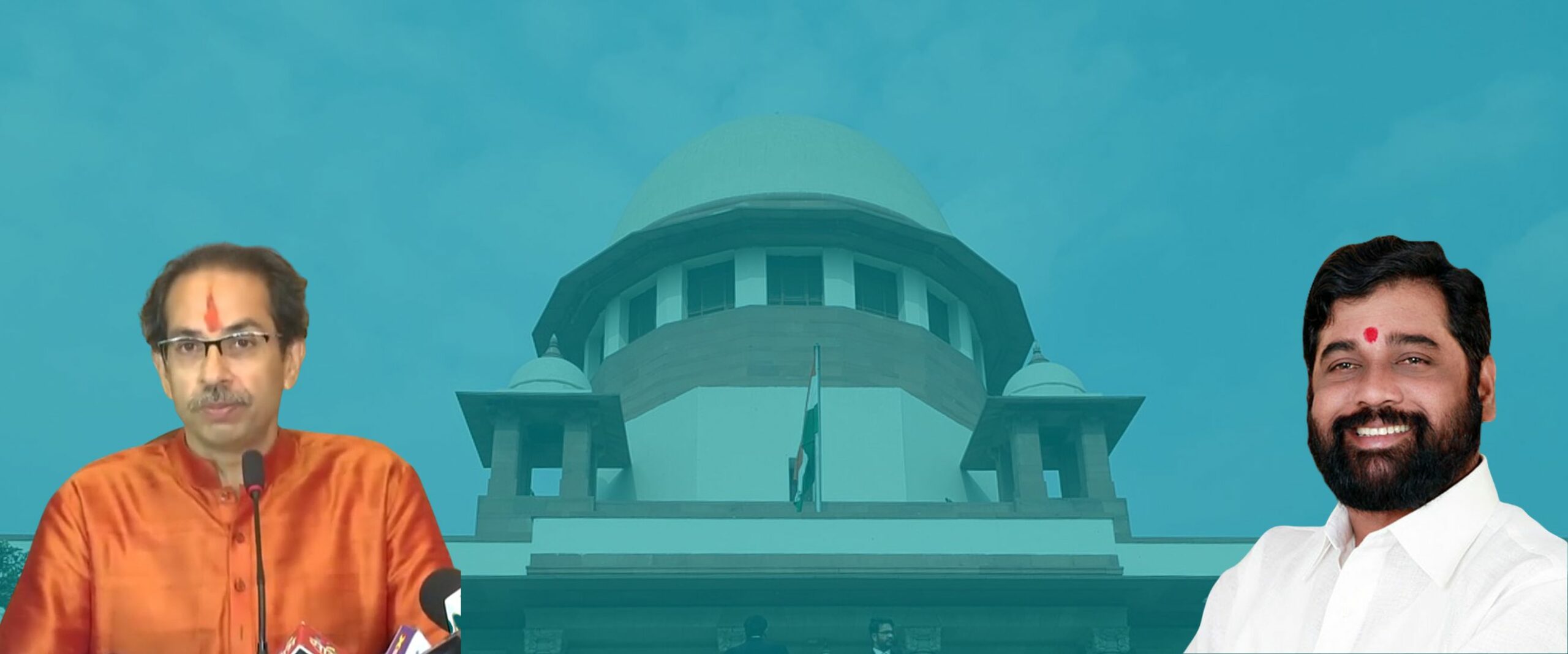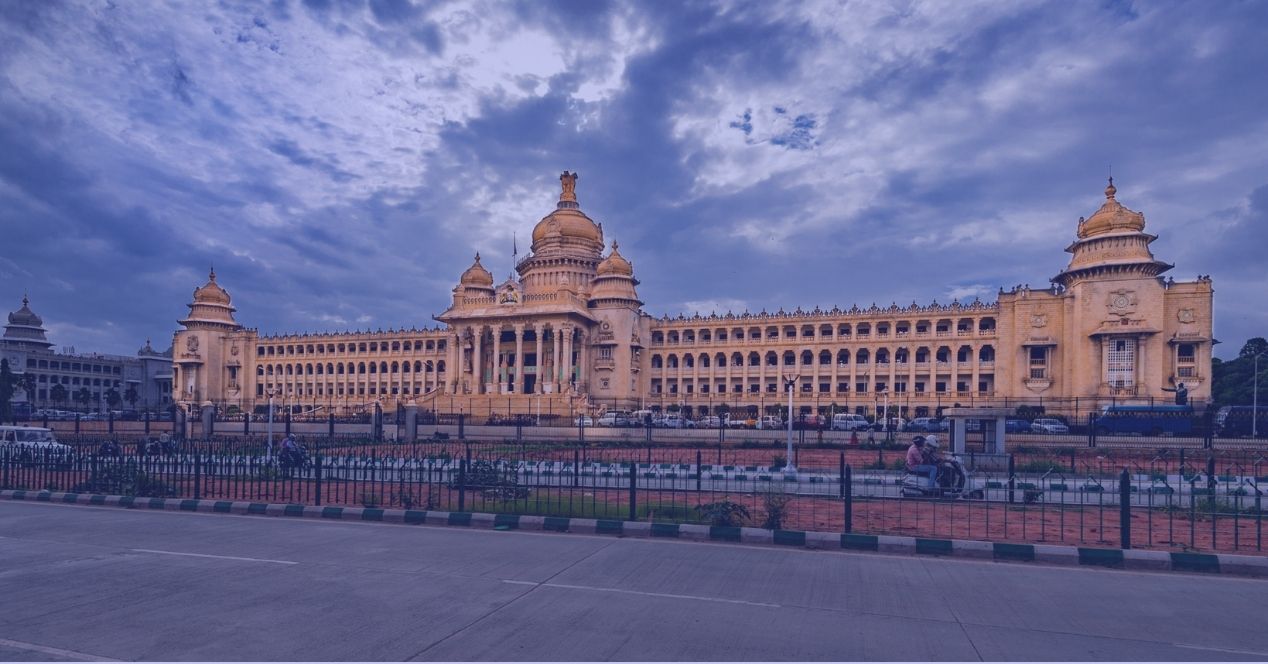Analysis
Maharashtra Political Crisis: Are Party Defections and Party Splits the Same?
With the application of defection law being unclear, the SC will decide whether the case needs to be heard by a larger Bench.

On July 20th 2022, a Bench consisting of Chief Justice N.V. Ramana, and Justices Krishna Murari and Hima Kohli heard the challenge to the disqualification proceedings against 13 MLAs initiated by the Deputy Speaker of the Maharashtra Legislative Assembly.
Grave questions on defection laws arose in the hearings—with Former Chief Minister of Maharashtra Mr. Uddhav Thackeray’s faction on one side of the debate, and incumbent Chief Minister Mr. Eknath Shinde’s rebel MLAs on the other.
The Bench, undecided on which side has the more compelling case, is considering a Constitution Bench reference. The Judges directed the parties to submit compilations of documents and a clear list of the issues they intend to argue.
What is the Maharashtra Political Crisis?
On June 24th, 2022 Former Chief Minister of Maharashtra Mr. Uddhav Thackeray urged the Deputy Speaker to issue disqualification proceedings against 16 Shiv Sena MLAs, led by Mr. Eknath Shinde. On the same day, two independent MLAs moved a no confidence motion against the Deputy Speaker Mr. Narhari Zirwal, through an anonymous email. On June 25th, the Deputy Speaker rejected the motion for lack of authenticity, and issued disqualification proceedings against the 16 rebel MLAs.
The very next day, Mr. Shinde’s faction of the Shiv Sena challenged the disqualification proceedings on two grounds. First, they argued that the resolution to remove Deputy Speaker Narhari Zirwal from his position was passed before the disqualification proceedings were initiated. Second, they argued that a minimum of seven days must be given to respond to the disqualification notice—the rebel MLAs were given two.
On June 27th, 2022, a vacation Bench of the Supreme Court issued an unusual Order. The Bench gave ‘breathing time’ to rebel Shiv Sena MLAs to respond to a notice for their disqualification issued on June 25th by the Deputy Speaker. Additionally, the Supreme Court gave the Shinde faction time until July 12th to respond to the notice. The Court’s intervention was unexpected. Usually, the Court does not intervene in ongoing proceedings of the House and waits for the Speaker’s decision, which it may later review.
On June 28th, 2022, the Shinde faction requested the Governor of Maharashtra, Mr. Bhagat Singh Koshyari to direct a floor test in the Assembly. Mr. Koshyari agreed to conduct the floor test on June 30th 2022. Immediately, the floor test was challenged by the Thackeray faction in the Supreme Court. After four hours of hearing arguments, on 29th June 2022, the Supreme Court refused to stay the floor test. Within an hour after the Supreme Court refused to stay the floor test, the Chief Minister of Maharashtra Uddhav Thackeray resigned.
The Court heard the initial challenge against the disqualification proceedings on July 20th, 2022. A 3-Judge Bench comprising Chief Justice N.V. Ramana and Justices Krishna Murari and Hima Kohli heard arguments from Senior Advocates Kapil Sibal and Dr. Abhishek Manu Singhvi for the Thackeray camp of the Shiv Sena and Senior Advocates Harish Salve, Mahesh Jethmalani and Solicitor General Tushar Mehta, for Mr. Eknath Shinde and the rebel MLAs.
Is Splitting Within a Party the Same as Defecting?
Chief Justice N.V. Ramana sought clarifications from both the parties on how the Tenth Schedule would apply to the present instance. Defection refers to when a member of a legislature abandons or leaves the political party, after being elected to the legislature under the ticket of that party. Para 3 of the Tenth Schedule stated that when a faction (of a minimum of ⅓ of the party members) splits within a political party, it would not amount to defection. With the Constitution Ninety-First Amendment Act, 2003, Para 3 was removed.
Mr. Kapil Sibal, arguing for the Uddhav Thackeray faction of the Shiv Sena, stated that the removal of Para 3 means that the rebel MLAs have no protection under the Tenth Schedule. Before the Ninety-First Amendment, they may have claimed that their rebellion amounted to a split. That exception no longer exists.
Mr. Harish Salve, arguing for Mr. Eknath Shinde disagreed. He stated that the Para 3 argument is ‘irrelevant’ in the present case. Para 2 clarifies that defection occurs when a member voluntarily gives up his membership, or when they refuse or vote contrary to the direction of the political party without permission. Mr. Salve argued that the rebel MLAs did not separate from the party in the manner mentioned under Para 2. They merely appointed another leader to the same party. Their actions do not merit disqualification, and there was no question arising out of the removal of Para 3.
Mr. Salve: Inner-party Democracy is ‘Throttled’ with Disqualification Proceedings
Mr. Salve insisted that the Deputy Speaker initiated disqualification proceedings when there was no indication of defection by the rebel MLAs. He pointed out that ‘the election by Shiv Sena of a Chief Minister of the Shiv Sena’ was being considered defection.
Further, Mr. Salve stated that if there is disaffection within a party, members of the party may express desire to choose another leader for themselves—they had an inalienable right to protest. Mr. Salve expressed concern that through the present challenge, the Court would be asked to bring back a party leader who did not have the confidence of the members of the party.
Mr. Singhvi: Inorganic Majority Claimed by the Shinde Faction
Mr. Singvi, arguing for the Uddhav Thackeray faction, took the Court through the way the former Deputy Speaker Mr. Narhari Zirwal was removed. The ‘defecting faction’ sent a motion of no-confidence to Mr. Zirwal via email one day before travelling to Guwahati. Mr. Singhvi emphasised that the email was from an unauthorised source, which the Deputy Speaker refused to accept.
Mr. Singvi concluded that everything that followed—appointment of a new Deputy Speaker by the Shinde faction, call for floor test, and insistence of the Shinde faction’s majority—was invalid. The Shinde faction are committing the ‘constitutional sin’ of defecting from their political party by creating a mirage of majority.
Constitution Bench Considered
The Bench directed the parties to submit a list of issues that they intend to argue. Chief Justice N.V. Ramana, careful not to indicate preference to either of the Shiv Sena factions, stated that there was a lack of clarity on the consequences of removal of Para 3, which dealt with splitting within a party. Culling out of the issues would assist the Court in deciding whether a larger Bench may have to be constituted to interpret the bigger questions on defection law.



